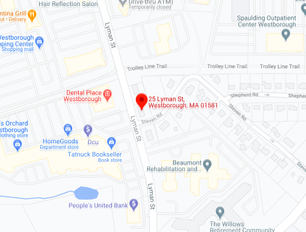Finding Gratitude: 30 Small Joys to Appreciate When You're Drawing a BlankLauren Chapin, LICSW
Gratitude can be a bit tricky, especially when times are tough. When you're experiencing things like burnout, loss, or a struggle with mental health, finding the silver lining can be frustrating. However, appreciating and acknowledging the positives doesn't always have to revolve around big life domains such as family, health, or basic needs. It can be the little things, the ones we often overlook in our daily lives. Here are 30 things that I personally feel grateful for. Try out some of these ideas to find things that inspire gratitude in small ways!
DBT for Teen Athletes: An Interview with Group Clinician Kaitlyn Hall, LMHCLauren Chapin, LICSW Castlebrook Counseling Services is excited to announce a new DBT therapy group beginning at the end of February 2024. This group will cater specifically to teen athletes and their unique mental health and self-care needs. Lauren sat down with the group’s creator and facilitator, Kaitlyn Hall, LMHC, to get the scoop.
Lauren: Hi Kaitlyn! I’m so excited to hear about this group as I know it’s something you’ve been working on for a while now. Can we start with a little introduction to DBT itself? Kaitlyn: Of course! Basically, DBT (Dialectical Behavior Therapy) is a proven, evidence-based therapeutic approach. I've taken skills from DBT and customized them to support teenage athletes. I will be guiding them in applying these skills on and off of the field to help them become the best version of themselves. Lauren: Were you an athlete in high school or college? If so, what sports did you play? Kaitlyn: I played field hockey and lacrosse in high school, and then I went on to play field hockey in college. I was also a goalie for both sports which came with its own challenges mentally. Three years ago, I actually went back to my alma mater as their assistant field hockey coach. Being back on a college campus has shown me more than ever how much of a struggle it is to be an athlete and how they probably don’t get enough services. I’m hoping this group can offset some support locally, and then maybe we can build upon it and it can become much bigger. Lauren: What have you noticed that suggests current services aren't really geared towards athletes, and what are some specific challenges you've noticed athletes dealing with? Kaitlyn: For athletes, every minute of every day is planned, and no human can sustain that type of rigidity. In high school, we’re looking at these 16-17 year olds and some of their schedules are worse than a college student. Between AP classes, or god forbid they want to be in a club or have friends or a job, there is no time. The rigidity can lead to a perfectionism that is then turning into full blown anxiety. I’m hearing from a lot of clients that with a sport they used to enjoy, they are now finding that participating in it is not as enjoyable because the anxiety is taking over. I think we could get that enjoyment back by relieving some of the, often self-imposed, pressure. Lauren: How do you envision a DBT group specifically addressing the gap you've identified? Kaitlyn: I think the group aspect is going to open the conversation up around the stigma of athletes having to be the toughest people on and off the field. I hope that it can allow them to be vulnerable with like-minded peers who are experiencing the same or similar things. Then with DBT, the concepts are adaptable to different niches. I hope it allows some of the teens in the group to get enough exposure to DBT that they could keep it going through individual therapy if they wanted. Lauren: Will this be a continuous group or time-limited? Kaitlyn: At this point, I am going to do 10 weeks for this first round. Based on experience and feedback, this can be adjusted for future groups. We will see where it goes! Lauren: Can we get a little sneak peek into some of the modules or what group members can expect? Kaitlyn: There will be your usual introduction session and termination session, but in between I’m hoping to do two weeks of mindfulness, two weeks of emotional regulation, two weeks of emotional effectiveness, and two weeks of distress tolerance, give or take. For each module, we will target skills and concepts that specifically apply to athletes. For example, in emotional regulation, there is a whole section about trying to reduce our vulnerability to emotions and how we can trim the areas of our lives that make us more emotional. I think we spend a lot of time on that as an athlete, like taking care of our bodies so that we can take care of our mind. Lauren: I'm so excited to see where this group goes, it sounds so promising! Kaitlyn: Yes! I’d love to eventually expand the group to college students as well. Lauren: What else is important for prospective group members to know? Kaitlyn: One thing that I’m hoping we can cover in my group is what do we do when we’re done? What do we do when we’re retired? I was reading a statistic this morning that said that only about 7% of high school athletes go on to play in college. So what do we do about the other 93% that just gave everything they had to sports for 4+ years and their life just drastically changes? You go from practices and games every day and then one day you wake up and it’s over. I don’t know that we do enough to prepare young people, or anybody, for that change. Lauren: I can see the value in hearing not only from peers but also from someone like you who shares a similar background and can relate in that way. Kaitlyn: Absolutely, I’m hoping I can use not only my clinical experience, but the shared lived experience to have a dual process with them. Lauren: Any last comments before we wrap up? Kaitlyn: Group therapy can sound really scary, but we’re just gonna be a bunch of athletes sitting in a room figuring out how to take care of ourselves better. And if we learn some things, have a good time, and maybe we start to build more confidence in ourselves as an athlete and as a human, I would say that would be a success. Sleep Hygiene: 8 Tips to a Better Night’s SleepLauren Chapin, LICSW Lauren Chapin, LICSW
Sleep plays a pivotal role in our daily functioning. Sleep is restorative, and not only replenishes our energy but also contributes significantly to preserving our mental well-being and overall physical health. Unfortunately, according to the CDC, one-third of adults in the United States acknowledge receiving less sleep than what is medically advised. As per the National Institute for Neurological Disorders and Stroke, there is a profound impact of insufficient sleep on our cognitive abilities. Without an adequate amount of high-quality sleep, our brain's capacity to forge and sustain the essential neural pathways required for essential tasks of learning, memory creation, concentration, and responsiveness becomes impaired. While some individuals boast about thriving on just a few hours of sleep, the National Sleep Foundation emphasizes that people can inadvertently build a tolerance to sleep deprivation as their brains and bodies grapple with the consequences of such sleep deficits. Sleep needs vary by age and developmental stage, but less than 7 hours is not suggested for anybody. This underscores the significance of prioritizing sleep instead of putting it on the back burner. So what can we do to improve how we spend one-third of our lives on average? Creating your sleep retreat
Before-Bed Behavior
Change is hard, so don’t expect yourself to implement all of these habits at once. Pick one or two and log your hours/quality of sleep for a week. You might be surprised by the results! |
Mission Statement
Castlebrook Counseling Services, Inc. is a group of private practice clinicians with a shared goal of strengthening our community by providing therapy and clinical support designed for children, adults, and families to successfully meet life’s challenges.
 RSS Feed
RSS Feed

